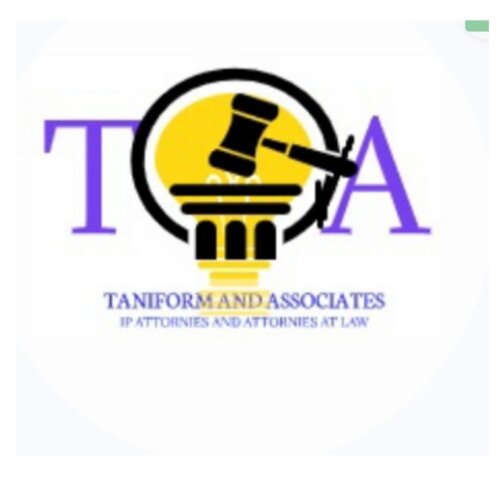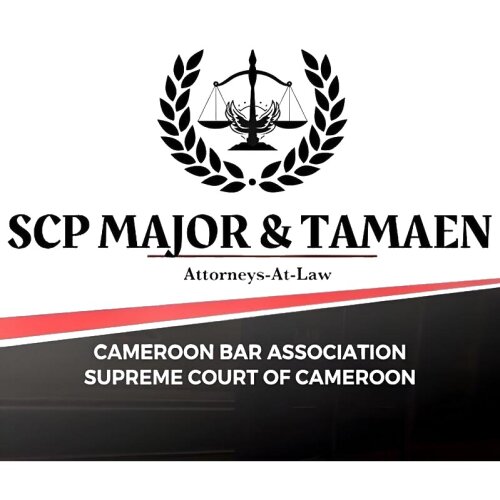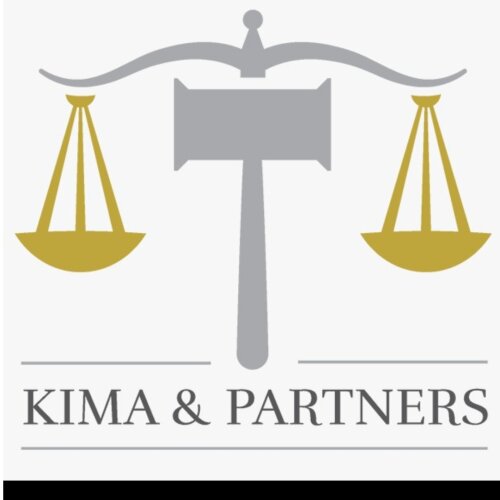Best Nonprofit & Charitable Organizations Lawyers in Yaoundé
Share your needs with us, get contacted by law firms.
Free. Takes 2 min.
List of the best lawyers in Yaoundé, Cameroon

Taniform and Associates IP Attorneys and Attorneys at Law
15 minutes Free ConsultationLegal guides written by CHI & Partners Law Firm:
- Ship Registration in Cameroon
About Nonprofit & Charitable Organizations Law in Yaoundé, Cameroon
Nonprofit and charitable organizations in Yaoundé, Cameroon, are vital components of the social fabric and play a critical role in addressing various community needs. These organizations operate to serve public or community benefits rather than private interests. Legal frameworks governing these entities ensure their operations are transparent, accountable, and aligned with their social mission. Understanding the legal context is essential for anyone involved or planning to engage in the nonprofit sector in Yaoundé, Cameroon.
Why You May Need a Lawyer
There are several scenarios where individuals or organizations may require legal expertise in the realm of nonprofit and charitable organizations:
- Establishing a new nonprofit organization, including drafting bylaws and ensuring proper registration.
- Navigating the regulatory requirements for obtaining tax-exempt status.
- Advising on compliance with local and international laws, especially regarding fundraising and financial reporting.
- Handling legal disputes related to governance, employment, or donor agreements.
- Ensuring legal protection when carrying out international operations or partnerships.
- Consulting on mergers, acquisitions, or restructuring of nonprofit organizations.
Local Laws Overview
The legal landscape for nonprofit and charitable organizations in Yaoundé, Cameroon, involves several key aspects:
- Registration and Formation: Organizations must register with the Ministry of Territorial Administration and Decentralization to gain legal recognition. The process includes submitting various documents such as statutes, board member details, and objectives.
- Tax Exemption: Nonprofits may apply for tax-exempt status, which requires adherence to specific financial and operational guidelines prescribed by the Directorate General of Taxation.
- Governance: Laws dictate organizational governance structures, emphasizing transparency and accountability by mandating regular board meetings and accurate record-keeping.
- Reporting Requirements: Annual reports must be submitted to the relevant authorities, detailing financial activities and any significant operational changes.
- Fundraising Regulation: Legal frameworks regulate fundraising activities, ensuring they are conducted ethically and transparently.
Frequently Asked Questions
1. What is required to start a nonprofit organization in Yaoundé?
To start a nonprofit, you must register with the Ministry of Territorial Administration, provide a constitution, detailed statutes, and a list of board members.
2. How can we apply for tax-exempt status?
Nonprofits can apply for tax exemption through the Directorate General of Taxation by submitting relevant financial documents and proof of activities aligned with public interest objectives.
3. Are there specific financial reporting requirements?
Yes, nonprofits must maintain transparent financial records and submit annual reports to ensure accountability and transparency.
4. Can a nonprofit in Cameroon operate internationally?
Yes, but it must comply with both local and international legal frameworks, including tax obligations and reporting requirements.
5. What are the governance requirements for Cameroonian nonprofits?
Organizations are required to adhere to good governance practices, including regular board meetings, comprehensive record-keeping, and compliance with bylaws.
6. Are there restrictions on fundraising activities?
Fundraising activities are regulated to ensure ethical practices, and organizations must comply with local laws governing solicitation and use of funds.
7. How can we ensure compliance with local laws?
Regular legal consultation and adherence to regulatory guidelines can help organizations remain compliant with local laws.
8. What legal challenges might a nonprofit face in Cameroon?
Challenges can include complex regulatory environments, disputes over governance, and issues with financial transparency or liability.
9. Are there penalties for non-compliance with nonprofit laws?
Yes, penalties may include fines, revocation of legal status, or other administrative actions.
10. How can a lawyer help in a legal dispute involving a nonprofit?
Lawyers can offer guidance on navigating disputes, mediate conflicts, and represent the organization’s interests in legal proceedings.
Additional Resources
For individuals seeking further information, several resources are available:
- Ministry of Territorial Administration and Decentralization: Primary governmental body overseeing nonprofit registrations.
- Directorate General of Taxation: Provides guidelines and processes for tax-exempt applications.
- Civil Society Organizations Networks: Platforms for knowledge sharing and advocacy support for nonprofits.
- Local Legal Aid Clinics: Offer legal advice and support for organizations with limited resources.
Next Steps
If you need legal assistance for your nonprofit organization, here are the steps you may consider:
- Identify Your Needs: Clearly outline the specific legal services you require for your organization.
- Consult a Legal Expert: Reach out to a lawyer specializing in nonprofit law to discuss your legal requirements and potential challenges.
- Gather Documentation: Organize all necessary documents related to your organization’s operations and legal needs.
- Contact Governmental Agencies: Engage with the relevant authorities for guidance on compliance and regulatory issues.
- Engage in Network Conversations: Connect with other nonprofit leaders and networks to learn from their experiences and share challenges.
Following these steps can provide direction and ensure your nonprofit organization is legally sound and able to fulfill its mission effectively.
Lawzana helps you find the best lawyers and law firms in Yaoundé through a curated and pre-screened list of qualified legal professionals. Our platform offers rankings and detailed profiles of attorneys and law firms, allowing you to compare based on practice areas, including Nonprofit & Charitable Organizations, experience, and client feedback.
Each profile includes a description of the firm's areas of practice, client reviews, team members and partners, year of establishment, spoken languages, office locations, contact information, social media presence, and any published articles or resources. Most firms on our platform speak English and are experienced in both local and international legal matters.
Get a quote from top-rated law firms in Yaoundé, Cameroon — quickly, securely, and without unnecessary hassle.
Disclaimer:
The information provided on this page is for general informational purposes only and does not constitute legal advice. While we strive to ensure the accuracy and relevance of the content, legal information may change over time, and interpretations of the law can vary. You should always consult with a qualified legal professional for advice specific to your situation.
We disclaim all liability for actions taken or not taken based on the content of this page. If you believe any information is incorrect or outdated, please contact us, and we will review and update it where appropriate.













